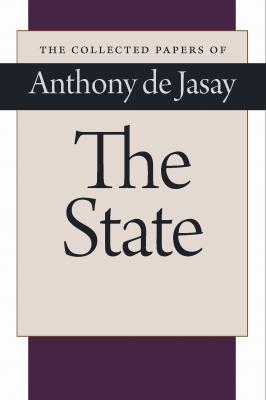The State. Anthony de Jasay
Читать онлайн.| Название | The State |
|---|---|
| Автор произведения | Anthony de Jasay |
| Жанр | Юриспруденция, право |
| Серия | The Collected Papers of Anthony de Jasay |
| Издательство | Юриспруденция, право |
| Год выпуска | 0 |
| isbn | 9781614872191 |
Taking these democratic ways out of the predicament which repressive government represents for the state (rather like committing the moral fault by which the protagonist tries to escape his fate in a properly constructed tragedy), entails its own punishment. “Punishment” for the state comes in the form of having to put up with political competition with rivals for power, whose consequences are ultimately destructive of the very ends the state was attempting to fulfil.
One logical issue out of this dilemma is resort to what is politely called people’s democracy, where the state has ample means to repress political competition yet solicits a degree of its subjects’ consent by raising expectations of future rewards once the building of socialism is sufficiently advanced. Some implications of open rivalry for state power, the multi-party system and of “clout” in civil society which may oppose the state unless bought off or reduced, will be more systematically treated in chapter 4, “Redistribution,” and the state’s rational response, principally the reduction of civil society’s clout, in chapter 5, “State Capitalism.”
When it is a question of obtaining tenure of the state in the first place, or not losing it, first things come first, with any considerations of how to use power once it is secured, coming obviously second in logical order if not in value. Assembling a broad enough base of consent can both earn power, and pre-empt the political ground which a narrower base would leave dangerously vacant and open for others to invade. Whether or not the rulers of a democratic society have the acuity to foresee the ultimately frustrating character of rule-by-consent (as compared to the disciplines of rule-by-repression, and the state of grace which is rule-through-legitimacy), the logic of their situation—drift—the politics of small steps drive them on in the democratic direction. They must deal with the immediate consequences of their previous weaknesses regardless of what the more distant future may call for, because, in the unforgettable phrase of a famous British consent-seeker, “a week is a long time in politics.”
Some of these considerations may help explain why, contrary to the early schoolbook version of disenfranchised masses clamouring for the right to participate in the political process, the drive for widening the franchise often came as much from the ruler as from the ruled. This seems to me the realistic view to take of Necker’s electoral initiatives for the French provincial estates in 1788-9, of the English reforms of 1832 and 1867 and of those of the Second Reich after 1871.
Rewards, finally, do not spontaneously grow on trees, nor are they generated and distributed to good citizens by good government. They are bargaining counters which the state acquires for distribution to its supporters by taking sides. A presumptive adversary of all in civil society, to obtain the support of some, it must become the actual adversary of others; if there were no class struggle, the state could usefully invent it.
The rise of partisan democracy in the nineteenth century served to build both mass consent and a bigger and cleverer state apparatus.
In a republic of teachers, the capitalist ends up as the political underdog.
The foundations of the lay Western welfare state were probably laid in England’s 1834 Poor Law, not because it was particularly good for the welfare of the poor (it was in fact bad in that it abolished outdoor relief) but because, at the same time as concerning itself with the poor, the state transferred the larger part of the administrative responsibility for them from the dilettante and independent local authorities to its own professionals in what was then starting to take shape as the civil service. The foremost author and promoter of this scheme of building state muscle and governing capacity was the great practical utilitarian Edwin Chadwick, without whose intense drive much of the intervention of the English central government in social affairs might have taken place several decades later than it did. However, there he was, his zeal speeding up historical inevitability by twenty years or so, clearly recognizing that if the state is effectively to promote a good cause, it must not rely on the goodwill of independent intermediaries whom it does not control.9 When subsequently he addressed his energies to public health, he obtained the creation of the General Board of Health with himself as its first Commissioner, only to have the Board peter out on his retirement in 1854, demonstrating how much depended, at that incipient stage of historical inevitability, on the commitment of a single individual. It was not till 1875 that the state got round to re-creating an administrative body in the Public Health Act and in doing so, incidentally committing “the largest invasion of property rights in the nineteenth century.”10
Конец ознакомительного фрагмента.
Текст предоставлен ООО «ЛитРес».
Прочитайте эту книгу целиком, купив полную легальную версию на ЛитРес.
Безопасно оплатить книгу можно банковской картой Visa, MasterCard, Maestro, со счета мобильного телефона, с платежного терминала, в салоне МТС или Связной, через PayPal, WebMoney, Яндекс.Деньги, QIWI Кошелек, бонусными картами или другим удобным Вам способом.
